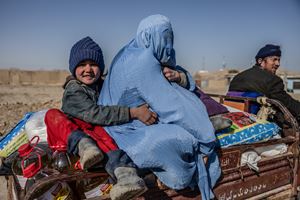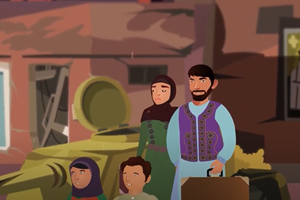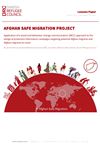
Diaspora Response in Conflict Settings
The dynamic between conflict and diaspora engagement significantly shapes humanitarian response and recovery efforts. Displaced diaspora communities possess unique transnational abilities, which facilitate the swift mobilisation of resources and effective crisis relief efforts.

Diaspora groups consistently address ongoing conflicts and natural disasters by supporting efforts for livelihoods, education, and providing healthcare through training and equipment. This type of engagement is often sustained over time, stretched beyond immediate responses, and with a global scale.
Diaspora organisations are adept at operating across the humanitarian-development-peace nexus, offering both immediate relief and long-term development aid. The collaboration between diaspora groups and humanitarian or development institutions is vital for enhancing response effectiveness.








The Role of Diaspora Organizations Responding to Conflicts
Diaspora organizations globally are critical actors in the humanitarian landscape, especially responding to needs of populations affected by conflict. These organizations are typically:
- Multi-Sectoral: They provide a range of services from immediate relief to long-term development.
- Fast Responders: Due to their transnational ties, they can mobilize resources quickly and respond faster than traditional humanitarian actors.
- Advocates: They raise awareness and advocate for their communities in both their host and origin countries.
Case-Study Examples: Diaspora Response to Conflicts
Ukraine
In response to the Russian Federation's offensive on Ukraine in February 2022, Ukrainian diaspora organizations mobilized rapidly to support affected communities. Their efforts included:
- Fundraising: Diaspora organisations (DOs) raised significant funds to support relief efforts, leveraging social media and their networks.
- Direct Assistance: DOs provided medical supplies, food, and other essential items to those in need.
- Advocacy: Diaspora groups played a crucial role in advocating for international support and raising awareness about the humanitarian crisis.
- Information Provision: DOs mobilised their networks to disseminate critical information quickly, aiding both local and international response efforts.
- Humanitarian Assistance versus Military Support: DOs played a crucial role in supporting Ukraine's Civilian Defense Forces, mobilising donations of protective gear, medical supplies, and food, alongside volunteer fighters. This support, facilitated through initiatives like the National Bank of Ukraine's donation account, blurs the distinction between military and humanitarian aid, highlighting the diaspora's significant role in bolstering local defense efforts.
Sudan
In response to the conflict that erupted in Sudan on April 15, 2023, the Sudanese diaspora reacted rapidly to support affected communities. Their efforts included:
- Fundraising: Sudanese diaspora organisations (DOs) raised significant funds to support relief efforts. Using social media and their extensive networks, they quickly raised funds to meet urgent needs on the ground.
- Direct Assistance: DOs provided medical supplies, food and other essentials to those affected by the conflict, particularly in hard-hit areas such as Khartoum and Darfur.
- Advocacy: Diaspora groups played a crucial role in advocating for international support and raising awareness of the ongoing crisis. They engaged with the global media and policymakers to highlight the urgent humanitarian needs and call for immediate action.
- Information Provision: Through their networks, DOs quickly disseminated critical information and helped coordinate local and international response efforts. This included sharing updates on the security situation, available resources and ways to support affected communities.
- Healthcare Support: A major focus was on health, with efforts to provide medical training, equipment and supplies to overstretched local health facilities. This support was crucial in addressing the immediate health crises and preventing further deterioration.
Key Advantages of Diaspora Organizations
- Local Knowledge and Connections: Diaspora organisations have an intimate understanding of their home country's cultural and social dynamics, allowing them to navigate complex environments effectively.
- Rapid Mobilisation: Their ability to quickly gather and distribute resources makes them vital during the initial stages of a crisis.
- Remote Management: Diaspora organisations often operate remotely, maintaining strong ties with local communities even when physical presence is limited.
Countries in the Diaspora Programme


Somali Diaspora
Read more
Ukrainian Diaspora
Read moreProjects in the Diaspora Programme

DiPS - Diaspora Project Support
Read more
DEMAC - Diaspora Emergency Action & Coordination
Read more





